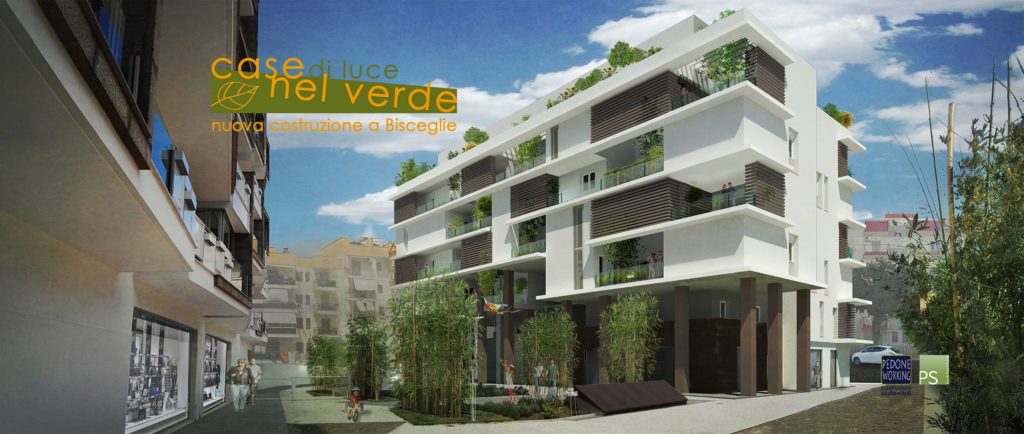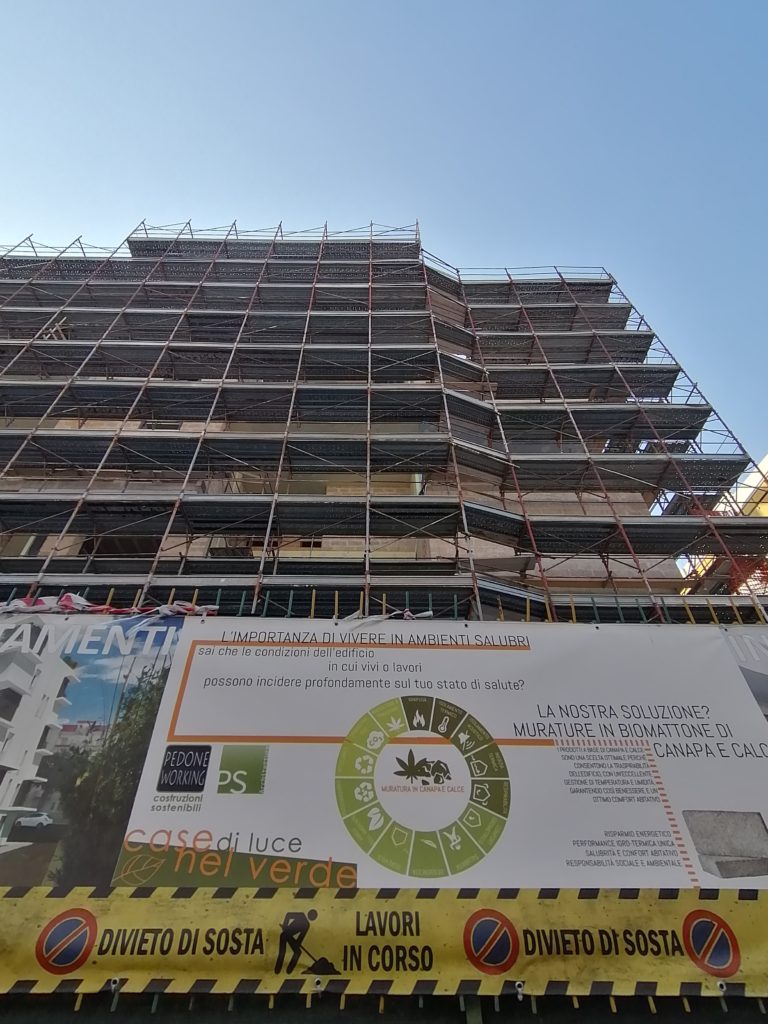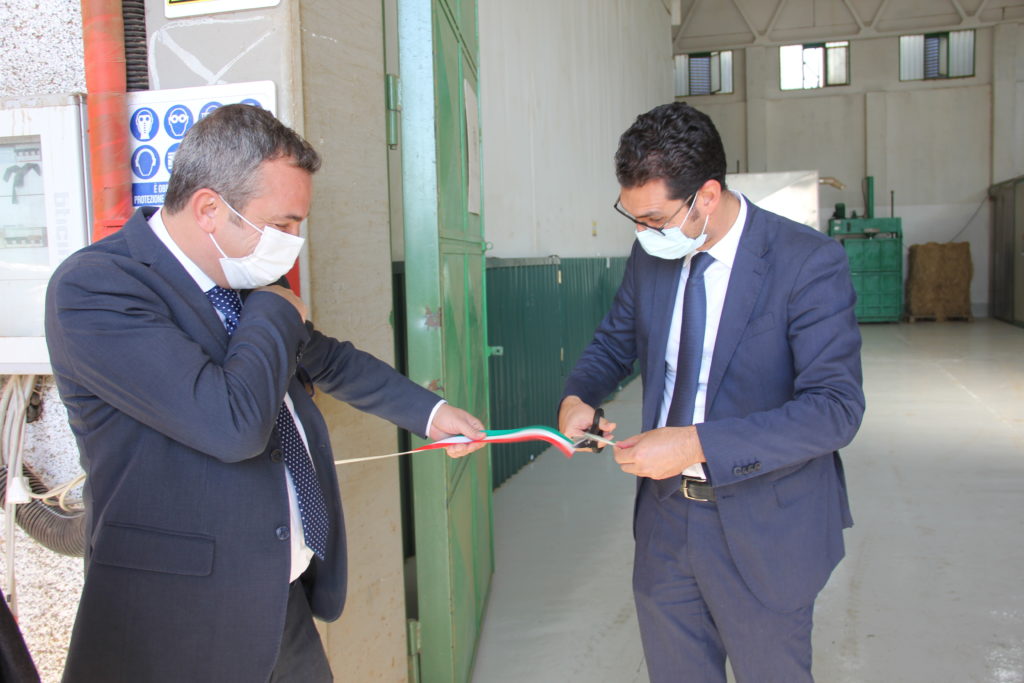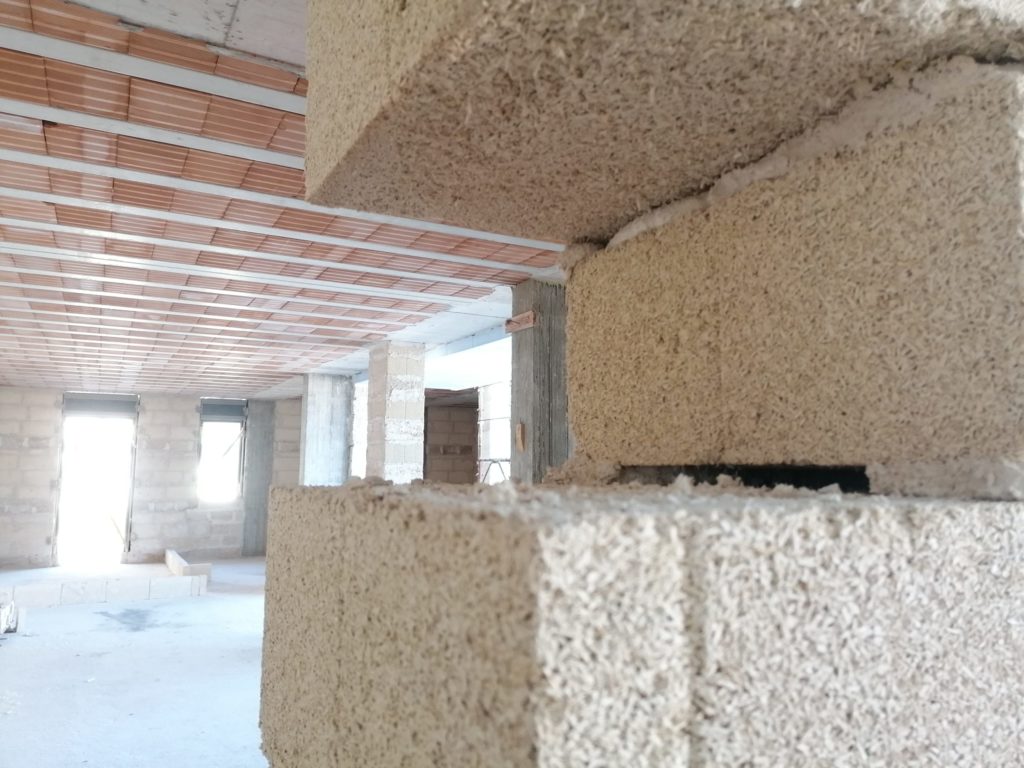When eco-minded hemp building visionaries dream, they see local crops of hemp straw processed into hurd at a local factory, mixed with local lime for local construction projects raised by local workers.
In Puglia, the region that forms the heel of southern Italy’s “boot,” the dream is being brought to life. That’s where a consortium of hemp interests have combined to close the loop on a local “short supply chain” that is delivering hempcrete building materials to “Case nel verde” (“Houses in the Green”) a 24-unit condominium project now under construction.

From nearby hemp fields to a local straw processing center to the building site itself, the maximum any materials must travel is less than 100 kilometers (60 miles). That means reduced costs and a low carbon footprint as a result of limited transportation requirements. It also means that as demand for hempcrete construction in the region grows, it can be met quickly and easily through a regenerative local circular economy.
‘Short’ supply chain
The consortium is demonstrating “transversal production that deals with everything in construction – new building, renovation, rehabilitation, dehumidifying – through industrial development of the building material,” said Pantaleo Pedone of Pedone Working srl, one in a consortium of stakeholders who have combined forces to establish the working local hempcrete construction supply chain in Puglia.

“The short supply chain pays off because the transport costs for a material that produces these large volumes are inconsistent with the green principles of hemp,” said Pietro Paolo Crocetta, president of consortium member Bio Hemp Trade, an industrial research and development company that coordinates the group. The lime used in the hempcrete is also locally sourced.
New factory

The chain begins with Palma D’oro, a local cooperative whose farmers grow the hemp, which is then processed at a new factory in the local town of Cerignola through decortication and scutching machines from Milan-based specialist Tecnocanapa.
The raw materials are used by Pedone Working, a 60-year old architectural and engineering firm that has developed the Biomattone hemp-lime building block used in projects which the company also designs and builds. In addition to its Biomattone blocks, Pedone Working, which has a decade’s experience in sustainable building, makes earthquake-proof hemp-based mortar and hemp plasters, which can be mixed on-site like traditional building materials.
‘Smart’ production
Layered over the entire process is a digital platform from xFarm, a Swiss “smart farming” technology company whose team in Italy created a system to optimize operations from field to factory. The system sets the basis for quality certification standards at all points along the supply chain, employing such features as irrigation sensors and satellite maps to monitor hemp fields, and a digital management system at the processing and production stage that constantly checks the cleaning and drying processes. All of that data lets the consortium trace production batches from the seed to the materials that go into the hemp building blocks.

The “Case nel verde” project, a 24-apartment building which the consortium claims is the largest hempcrete housing complex in Europe, demonstrates what comes at the end of the local value chain. The building’s 40- to 50-centimeter thick walls are built from 1500 cubic meters of Working Pedone’s Biomattone blocks, and 12,000 sq. m. of the company’s hemp plaster. The hemp materials are supported by the 26.5-meter tall structure’s frame of steel and reinforced concrete. The complex, in the city of Bisceglie, was designed as a model for high-performance buildings that have low energy consumption.
Reclaiming hemp glory
While the consortium’s first goal was to build a supply chain for green building, Crocetta said similar organizational structures for hemp-based products such as bioplastics, paper and textiles can follow. He envisions two more such processing centers in the future, one in Campania and one in central Italy.

Giuseppe L’Abbate, Italy’s undersecretary for agricultural policy, said the opening of the Cerignola factory will stimulate the regional economy while addressing sustainability and employment goals.
“The new hemp processing center will create new jobs and make businesses increasingly competitive, enhancing various new production chains,” the undersecretary said at a recent ceremony that christened the factory. “Establishing it in Puglia, within a radius of 100 km, means fast access to industries, whether it is agri-food, textile or construction; it will be a great source of pride for this region that has long believed in the relaunch of this crop.”
“This is the first step to return to the greatest days of Italian hemp cultivation,” said Bio Hemp Trade’s Crocetta, “reviving the 1950s, when Italy was the second largest producer of hemp in the world.”

